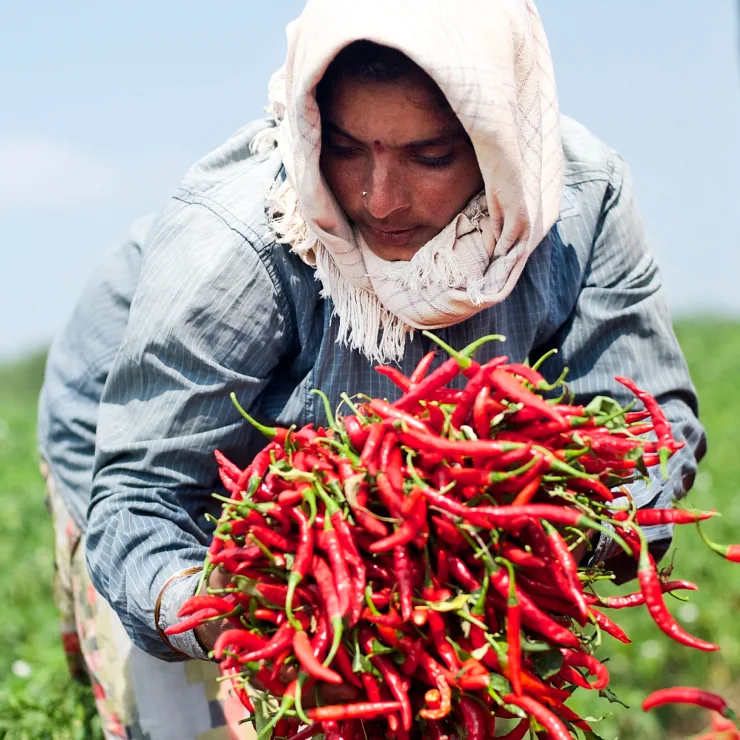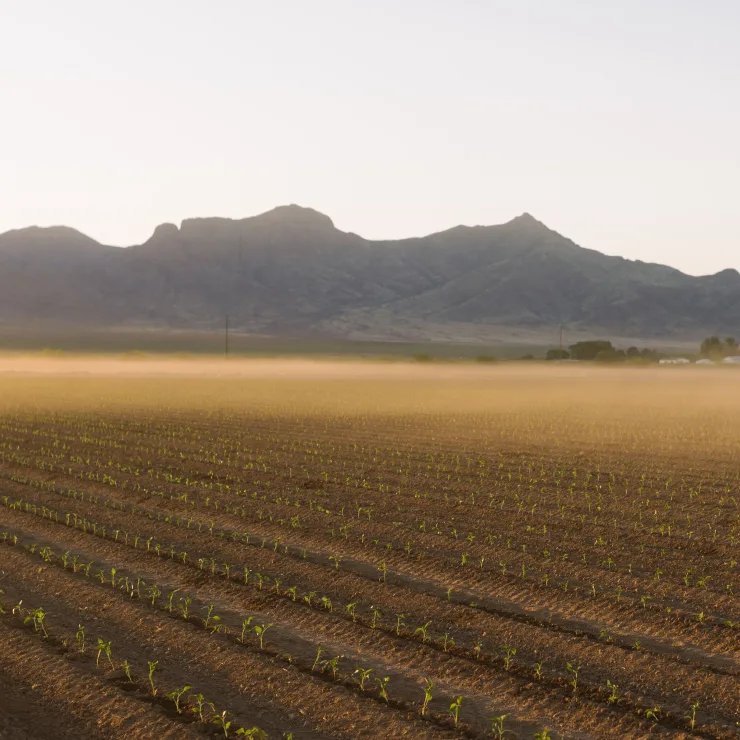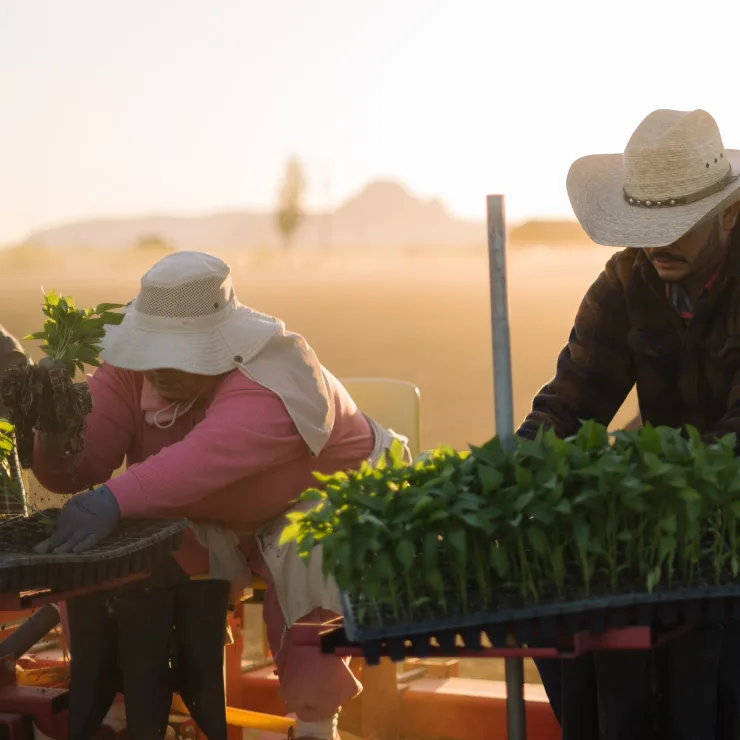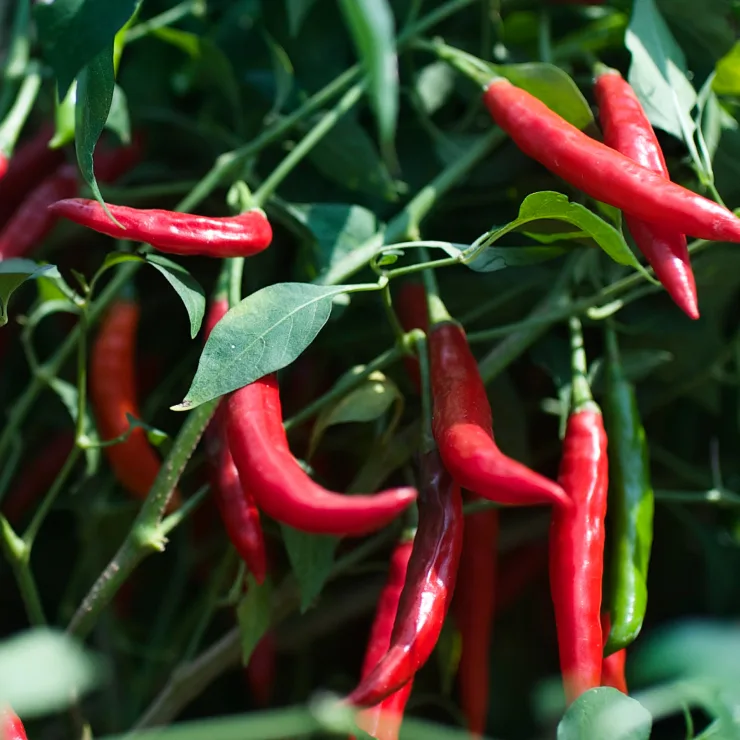Collaboration
Let's put our minds behind something special. Delight consumers, grow businesses and make real change for people and the planet - by creating together.
Rich, smoky, deep. An intoxicating blend of warmth, sharpness and brilliant color, food lovers who want memorable meals turn to chiles.
Our chile quality comes down to a few key factors. Our seed-to-factory management in the US Southwest, our trusted farmer partnerships in India and Mexico and some of the world’s broadest selection of chiles—red, green and beyond—in every format you need. When it comes to heat, flavor and authenticity, we can get consumers around the world fired up for your chile product.

Our wide range of chiles includes paprika (smoked and unsmoked), chili pepper and powder, ground red pepper, specialty peppers (ancho, habanero, scorpion, guajillo) and blends, including customer recipes.

When you want to add taste, heat, color and depth to dishes with easy, fuss-free flavoring and seasoning, dried chili powder and chili spice blends are the solution. They easily integrate into marinades and rubs, creating hot sauces, elevating baking or adding a decorative element as a garnish. Another handy advantage? Ground chile offers greater control over the heat level.

Processing
Our Las Cruces facility in New Mexico runs 24/7 and holds the title of the world’s largest red chile processing plant. Spanning 22 acres, with 155,000 square feet dedicated to manufacturing and another 150,000 for dry storage, this powerhouse turns out premium dried spice ingredients in a range of formats—from 50 lb. bags to massive 1,200 lb. Super Sacks. So whether you want large or small, we can tailor-make our processing for sizes that fit any need.*
*Numbers subject to change

Sustainability starts at the source. We partner with top local growers, providing expert oversight, custom equipment and decades of experience to cultivate high-quality chiles with minimal environmental impact. Our growers are Good Agricultural Practices (GAP) Certified, enabling responsible and efficient farming methods.
Our certified organic chiles are grown without synthetic fertilizers, pesticides or GMOs, meeting the highest organic farming standards and contributing to a sustainable world.
We work closely with seed breeders to develop new chile varieties with improved quality and environmental sustainability. By focusing on traits like reduced water consumption and maximum yield, we ensure that every acre of farmland is used as efficiently as possible.

Chiles that taste good and can be accounted for? We’re here for that. We believe in full traceability and smarter logistics to deliver the highest-quality chiles with minimal environmental impact. All of our U.S. grown chiles are tracked through our sustainable sourcing solution AtSource, providing traceability to a product's origin and transparency on key supply chain sustainability challenges through data and insights. It enables customers to map their unique sustainability journey, monitor performance and partner to create impact through targeted interventions.
It can be used to improve monitoring efficiency, enhance due diligence with external assurance, and can help ensure compliance with evolving industry standards.
AtSource empowers customers to realize their individual sustainability priorities and achieve positive change from the ground up.

Our promise
Chiles are our specialty—we’ve got 30 years experience in the field. With deep expertise and cutting-edge processing capabilities, we’re able to produce a full range of appetizing chile products.
We work with the best local partner growers, providing hands-on oversight, specialized equipment and decades of experience to cultivate the highest-quality chiles. Our certified organic chile spices are grown without synthetic fertilizers, pesticides or GMOs, ensuring they meet the highest organic standards for purity and flavor.
As a worldwide leader in chile production, our strategically located manufacturing facilities give us direct access to key chile-growing regions. This means fresher products, better traceability and a strong commitment to sustainability—ensuring every chile we produce meets the highest standards from seed to shelf.

Co-create
A smoky chipotle marinade to fire up consumers for barbecue season, or a tangy, on-trend upcycled chile pulp for plant-loving, eco-conscious foodies. Whatever you’re dreaming of launching, our expert R&D team, certified, sustainable ingredients and cutting-edge laboratories will help make your chile vision real.
Let's put our minds behind something special. Delight consumers, grow businesses and make real change for people and the planet - by creating together.
People with different skill sets are the ultimate blend. We’ll bring our global solutions and products, and you bring the ultimate ingredient: your brand.

Innovation
We’re at the forefront of using chiles to tweak, improve and evolve with the times and changing appetites. As consumers travel and experiment more with global cuisines, chiles are well placed to meet their experimental needs, bringing bold new heat and flavor to sauces, pastes and curries. From mild paprika to fiery red chiles, these products elevate dishes like enchiladas, soups, and curries with vibrant complexity. Our paprika adds color and mild heat to a variety of dishes, while our chili pepper products, deliver consistent heat for everything from chili con carne to Mexican enchiladas. Looking for a punch of fruitiness and heat in your new product? Our red chili from India spices up Southern, Caribbean and Indian cuisines.
We're leading the way in sustainable chile processing. By upcycling chili pulp into sauces, we’re reducing waste while delivering unique, clean flavors. And it all happens at our state-of-the-art processing facilities, primarily in southwestern United States.
All our growers are Good Agricultural Practices Certified
Want more spice? Browse the ofi world of flavor.